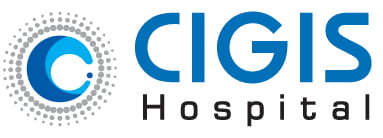
Esophageal cancer is cancer that occurs in the esophagus — a long, hollow tube that runs from your throat to your stomach. Your esophagus carries food you swallow to your stomach to be digested. Esophageal cancer usually begins in the cells that line the inside of the esophagus.
Signs and symptoms of esophageal cancer include:
Early esophageal cancer typically causes no signs or symptoms.
It’s not clear what causes esophageal cancer. Esophageal cancer occurs when cells in your esophagus develop errors (mutations) in their DNA. The errors make cells grow and divide out of control. The accumulating abnormal cells form a tumor in the esophagus that can grow to invade nearby structures and spread to other parts of the body.
Esophageal cancer is classified according to the type of cells that are involved. The type of esophageal cancer you have helps determine your treatment options. Types of esophageal cancer include:
It’s thought that chronic irritation of your esophagus may contribute to the DNA changes that cause esophageal cancer. Factors that cause irritation in the cells of your esophagus and increase your risk of esophageal cancer include:
As esophageal cancer advances, it can cause complications, such as:
Tests and procedures used to diagnose esophageal cancer include:
When you’re diagnosed with esophageal cancer, your doctor works to determine the extent (stage) of the cancer. Your cancer’s stage helps determine your treatment options. Tests used in staging esophageal cancer include computerized tomography (CT) and positron emission tomography (PET).
The stages of esophageal cancer are:
What treatments you receive for esophageal cancer are based on the type of cells involved in your cancer, your cancer’s stage, your overall health and your preferences for treatment.
Surgery to remove the cancer can be used alone or in combination with other treatments. Operations used to treat esophageal cancer include:
Esophageal cancer surgery carries a risk of serious complications, such as infection, bleeding and leakage from the area where the remaining esophagus is reattached. Surgery to remove your esophagus can be performed as an open procedure using large incisions or with special surgical tools inserted through several small incisions in your skin (laparoscopically). How your surgery is performed depends on your situation and your surgeon’s experience and preferences.
Chemotherapy is drug treatment that uses chemicals to kill cancer cells. Chemotherapy drugs are typically used before (neoadjuvant) or after (adjuvant) surgery in people with esophageal cancer. Chemotherapy can also be combined with radiation therapy. In people with advanced cancer that has spread beyond the esophagus, chemotherapy may be used alone to help relieve signs and symptoms caused by the cancer.
The chemotherapy side effects you experience depend on which chemotherapy drugs you receive.
Radiation therapy uses high-powered energy beams to kill cancer cells. Radiation can come from a machine outside your body that aims the beams at your cancer (external beam radiation). Or radiation can be placed inside your body near the cancer (brachytherapy).
Radiation therapy is most often combined with chemotherapy in people with esophageal cancer. It can be used before or after surgery. Radiation therapy is also used to relieve complications of advanced esophageal cancer, such as when a tumor grows large enough to stop food from passing to your stomach.
Side effects of radiation to the esophagus include sunburn-like skin reactions, painful or difficult swallowing, and accidental damage to nearby organs, such as the lungs and heart.
Combining chemotherapy and radiation therapy may enhance the effectiveness of each treatment. Combined chemotherapy and radiation may be the only treatment you receive, or combined therapy can be used before surgery. But combining chemotherapy and radiation treatments increases the likelihood and severity of side effects.
To book your appointment with a gastro surgeon, please reach out to us on +91 8160650099

